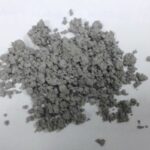Transforming Waste into Gold: Paper Sludge Finds New Life in Fertilizer Production
Paper Sludge
 In a groundbreaking move toward sustainability, the fertilizer industry is embracing a new approach to reduce waste and promote eco-friendly practices. The latest innovation involves the reuse of paper sludge, a byproduct of the paper manufacturing process, in the production of fertilizers.
In a groundbreaking move toward sustainability, the fertilizer industry is embracing a new approach to reduce waste and promote eco-friendly practices. The latest innovation involves the reuse of paper sludge, a byproduct of the paper manufacturing process, in the production of fertilizers.
Traditionally considered a waste material, paper sludge has long posed environmental challenges due to its disposal. However, recent advancements in research and technology have unveiled its untapped potential in agriculture. By repurposing this byproduct, the fertilizer industry is not only addressing waste management concerns but also contributing to a more circular and sustainable economy.
The process involves treating paper sludge to remove any contaminants and undesirable components. Once purified, the resulting material is rich in organic matter, making it an excellent candidate for enhancing soil fertility. The integration of paper sludge into fertilizer formulations introduces a cost-effective and environmentally friendly alternative to conventional production methods.
Experts believe that this innovative approach will not only reduce the environmental impact associated with paper sludge disposal but also significantly contribute to the reduction of synthetic fertilizers. The use of paper sludge-derived fertilizers has shown promising results in various crops, improving soil structure, water retention, and nutrient availability.
Environmentalists and agricultural professionals alike are applauding this move as a step toward a more sustainable future. The adoption of such practices aligns with global efforts to minimize waste, reduce carbon footprints, and promote responsible resource management.
The fertilizer industry’s commitment to incorporating paper sludge into its production processes underscores the potential for collaboration between different sectors to achieve common environmental goals. As the world grapples with the challenges of climate change and resource scarcity, initiatives like these provide hope for a greener and more sustainable future.
In conclusion, the recycling of paper sludge in the fertilizer industry marks a significant stride toward circular economy practices. By turning what was once considered waste into a valuable resource, the industry is not only addressing environmental concerns but also creating a model for other sectors to follow in the pursuit of a more sustainable and resilient planet.


